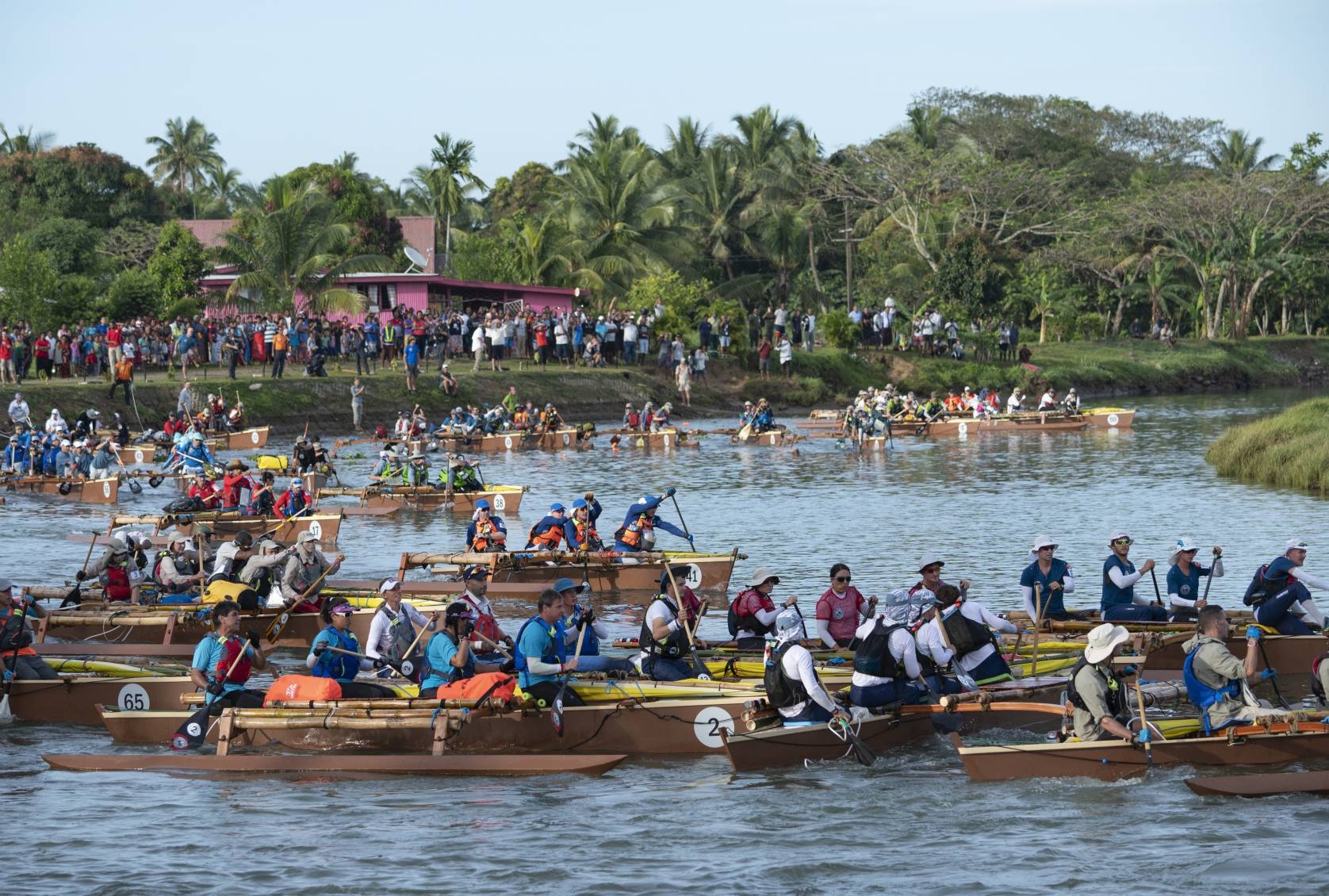When World’s Toughest Race: Eco-Challenge Fiji first screened earlier this year, international audiences vicariously took a road less travelled. The competition, which pitted 66 teams across 671 kilometres, saw participants use a compass and map to sail, hike, climb, paddleboard and bike through Fiji’s interior and maritime regions.
Amazon Prime, which aired the series, has approximately 150 million viewers in 200 countries and Fiji’s Minister for Industry, Trade and Tourism, Faiyaz Koya, said the production injected F$30.6 million (US$14.4 million) into the country. More than 200 locals were directly employed, with many others also involved.
The event saw participating villages and communities paid filming levies. Supplies and equipment such as water tanks and water purification technology, plus books for students, were also passed on to communities.
Fiji offers massive rebates to international companies that film in the country. Production companies are eligible for a 75% tax rebate calculated on total Fiji expenditure. The rebate is capped at F$15 (US$7) million. The sector generated F$134.1 million (US$63million) from 84 productions in 2019. The generous financial incentives are the reason the US Survivor franchise returns year after year.
But there are concerns that the Eco Challenge Fiji opportunity has not been leveraged as much as it could have. Timing and the pandemic has played a part; while the series was filmed in September 2019 it was aired almost a year later, as Fiji’s borders remain closed and international tourism ground to a complete standstill. However there also appears to have been a lack of coordination and strategic thinking about how to market the opportunity across a range of sectors.
Login or subscribe today for the full story
